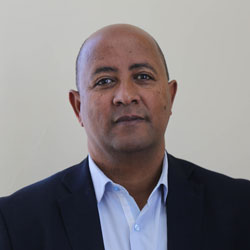Tonga
The Context
Tonga is an archipelago of 172 coral and volcanic islands, of which 36 are inhabited.
The country has low poverty rates and high standards of education and health. Yet Tonga's economy is fragile. People isolated in the remote outer islands are among the poorest in the country. Employment opportunities are limited, leading to a constant flow of migration, especially to New Zealand and Australia.
Agriculture is the main economic activity after services. About 88 per cent of Tonga’s population lives in rural areas, dependent mainly on agriculture and fisheries. Most are smallholder farmers practising a mix of subsistence and cash crop production. They typically grow root crops, which provide food security, employment and income.
Despite this underlying resilience, the Tongan people are vulnerable to climate change and to obesity related to poor diets.
Rural poverty is concentrated among smallholder farmers and small-scale fishers living in Outer Islands. About 25 per cent of households live below the basic needs poverty line. Women are particularly vulnerable to poverty. They carry a heavy work burden in poor rural areas, where their contribution of labour is essential to family subsistence.
The rural population is declining slowly, due to out-migration and a lack of incentives for young Tongans to remain in rural areas. The farmer population is therefore aging, leading to labour shortages. This has implications for food self-sufficiency in the long term.
The Strategy
For more than 30 years, IFAD has been providing financing to help rural people in the Pacific improve their lives. In recent years, resources, outreach and membership to IFAD have expanded. Member States now include: Cook Islands, Federated States of Micronesia, Fiji, Kiribati, Marshall Islands, Nauru, Niue, Palau, Samoa, Solomon Islands, Tonga, Tuvalu and Vanuatu.
IFAD’s strategy in the Pacific Islands is centred on building partnerships.
IFAD programmes and projects are concentrated on helping rural people to produce local food crops, especially indigenous and traditional foods This support responds to both climate change and nutrition issues.
Since 2013, the amount of IFAD resources provided for projects undertaken with partners for the Pacific has more than doubled, from around US$7.5 million to over US$15 million.
In Tonga, IFAD’s assistance concentrates on:
- attracting new partners and additional financing to agriculture and rural development;
- providing beneficiaries with greater access to technology and knowledge from our partners in other regions;
- facilitating dialogue and joint initiatives in the agricultural sector.
Country Facts
About 88 per cent of Tonga’s population lives in rural areas, where livelihoods are dependent on agriculture and fisheries. Most are smallholder farmers practising a mixed subsistence and cash crop production.
Since 1983 IFAD has supported 4 projects and programmes in Tonga with loans for a total of US$9.3 million, directly benefiting 10,890 rural households.



